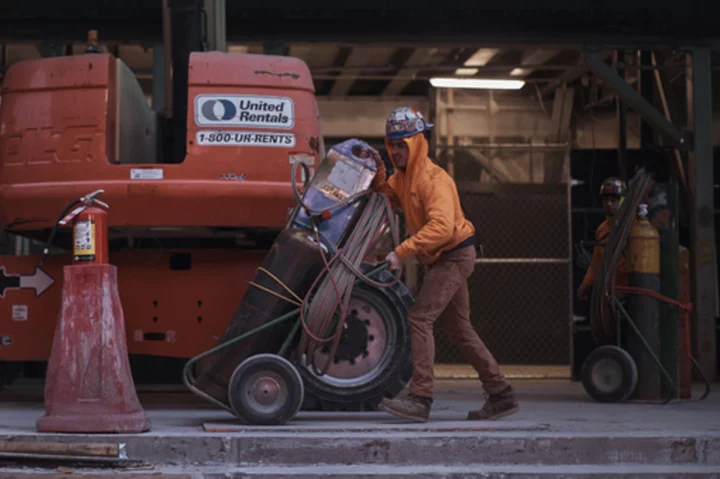MIAMI (AP) — With record heat in Florida and the rest of the U.S., officials in Miami-Dade County are moving to protect about 80,000 outdoor workers in the construction and agriculture trades.
The Miami-Dade County Commission gave initial approval Tuesday for new heat standards for outdoor workers as dozens or workers and activists attended the meeting to support the new rules, the Miami Herald reported. It still needs to pass a committee vote and a final vote in front of the full commission to become law. Similar proposals have failed in recent years.
Commissioner Kionne McGhee, the bill’s sponsor, talked during a news conference about his own experience growing up in a rural part of Miami-Dade and working as a bean picker alongside his mother.
“One death in the hot sun is one too many,” McGhee said. “Give these people what they need, something I didn’t have growing up, and that is simply water, sun protection, shade.”
The new ordinance would require companies in Miami-Dade County to give workers water and a 10-minute break in the shade every two hours on days when the heat index hits 90 degrees. Companies would also be required to train workers and supervisors on heat safety. Companies that repeatedly fail to do so could face fines up to $3,000 per violation per day.
At least two agricultural workers have died this year from heat-related issues in South Florida. Heat kills an average of 34 people a year and hospitalizes hundreds more in Miami-Dade, records showed.
More than 300,000 people work outside in Miami-Dade County, while the new rules would only cover the roughly 80,000 who work in construction and agriculture. Outdoor workers are 35 times more likely to die of heat-related illness than the general population.









